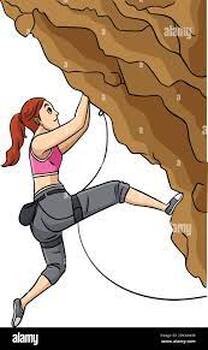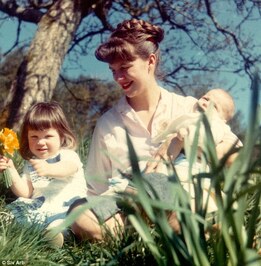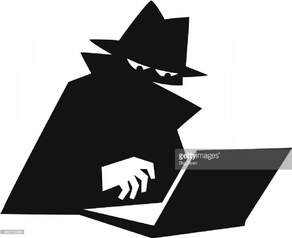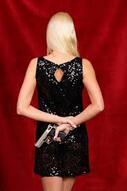|
There's a point in every successful poem where the reader becomes emotionally entangled. We might call it the "heart-point" of a poem. It's that moment when emotional response begins. It can happen with a title, like "Tears, Idle Tears" or "Do not go gentle into that good night," or it can come at the end, as in Sylvia Plath's, "Strumpet Song." The feeling can be sadness, anger, joy, wonder, guilt, or any other flavor you choose. Whatever emotion you're going for, the heart-point in your poem matters. Let's take a look at a really simple two-line poem and see if we can find the heart-point. The poem is the teacher's favorite, "In a Station of the Metro,” by Ezra Pound, first published in 1913. In a Station of the Metro The apparition of these faces in the crowd: Petals on a wet, black bough. The heart-point isn't in the setting-making, technical-toned title. It isn't even in the word "apparition," although the word is pivotal to the poem's emotional impact. It's actually in the word "petals." And the emotion that starts there is hope. It's impossible for most of us to think of Spring or flowers without feeling at least a wisp of hope. The reader's hope, however frail, is engaged with this word. What comes next is a soft-landing, which Pound brazenly accomplishes by doubling down on traditionally banal adjectives. Remove the word "wet" and you have a crash landing. The word "black" is an intentional mortal shadow, but its threat is checked by the Holy Word "wet" which, in addition to its obvious sexual and religious connections, also has a lot to do with the chemical and biological foundations of life itself. So, in placing the heart point where he did, Pound captures the feeling of sudden realization that is the entire purpose of the poem. His satori-in-a-bottle finishes with lightning because you feel hope-fear-hope in such rapid succession. The heart-point of a poem is a vital element that many poets overlook, or underestimate. But the best poets not only know how to use it; they know how to use it as a foundation for brilliance. If you'd like some feedback for your poetry or a bit of help polishing your words, just click one of the buttons below. Or email @ [email protected] Archives May 2024
0 Comments
As I've mentioned many times, the best poems smack you in the nose with a bit of surprise. Some poems, like Allen Ginsberg's, "Howl," or Charles Bukowski's, "Girl on the Escalator," seem built almost completely out of surprise left hooks meant to knock you out of your normal senses. Other poems, like Plath's, "Daddy," or Sexton's, "You, Doctor Martin," turn the surprise volume up to eleven before they even really get going, just by striking an attitude of power from what society expects should be a victim's perspective. But poems don't have to be revolutionary or controversial to surprise. A single line, or even a single word, can suffice. For example, May Swenson's poem, "All That Time," burns straight into memory mostly due to her brilliant use of gender pronouns. By attributing "he" and "her" to two trees, and personifying their entangled growth, she captures a powerful poetic vision that is poignant and perpetually surprising. In fact, it's basically impossible to write a poem that doesn't do something new. Like snowflakes, poems are infinitely unique. Each poem is a one-of-a-kind "fingerprint" that speaks to a specific creative inspiration. Every time you write a poem, even when the poem fails, you make something fresh. It may be a Big Discovery that you proudly recognize, like uncovering a new theme or inventing a new stanza. It may be something you never even consciously notice, like using a perfectly placed slant-rhyme or dactyl. The point is: part of what draws poets back to writing again and again is the sense of discovery. And part of what draws readers back to your poems is the promise of surprise. The challenge is to integrate surprise into your poetry in way that draws attention, but also rings true. Diane Seuss's poem, "Glosa," is a perfect example of how to do this. Take a look at it by clicking the image above. The poem turns on the lines: ...Caligula, who cut off tongues and fucked his sister. This single punctuation-point of surprise, like a sudden uppercut, defines the entire poem and shatters its otherwise pensive veneer. The scholarly tedium of life and the wildest sense of perversion are combined in these lines to define the poem's theme, but also to wrangle something new with words. The lesson to take away here is to look at your poems like presents, both to yourself and to the reader. Wrap them carefully and make the impact of opening them an experience the reader will never forget. If you'd like some feedback for your poetry or a bit of help polishing your words, just click one of the buttons below. Or email @ [email protected] Categories All Poems have natural elements that stay the same no matter what you do. The words move from left to right and the lines go from top to bottom. Of course you can change this and make any kind of poem you want, one that goes backward, forward, or makes alphabet soup on the page or screen. But, for the most part, the basic elements of a poem stay the same each time you start to create a new work.
Everyone knows that the last word of each line gets special emphasis by the reader, no matter what enjambment you use. Everyone also knows that first lines and last lines enjoy a greater punch just by being there. These are basic elements that every poet learns to use, almost by instinct. But what about other "elemental" elements of a poem? Are there aspects that get less attention than first words and last lines, but are just as powerful? In fact, there are quite a number of these basic elements that you can use to empower your poems. I'm only going to talk about one in this post and that's the downward motion of a poem. Virtually every poem in English moves from the top to bottom and you can (and should) use this natural motion to you advantage. One perfect example of this is the poem I talked about in yesterday's post, Plath's "Black Rook in Rainy Weather." The poem starts with the speaker looking up in a hopeful way, and then, as the lines fall down, the speaker looks inward to doubt and hesitation, sweeping back up (slightly) at the close to find a sprig of hope. Another really short poem that uses the downward motion of a poem well is: "We Real Cool" by Gwendolyn Brooks, with the lines literally burying the guys in the poem and leaving a tombstone to them. Another great example is "Apple Picking" by Robert Frost -- where the poem becomes a ladder to memory and dreams. And yet another , rather spectacular, example is Hart Crane's "Atlantis." That one's dynamiter though so be very careful! And last, but certainly not least, I'd like to mention Anne Sexton's poem, "The Ambition Bird" which is about the struggle to contain and release artistic ambition. You can see how she uses the downward climb of the poem yourself -- it's heart wrenching. The point is: the downward climb of a poem is there whether you like it or not; it's part of your poem's expression whether you want it or not. So your best bet is to let the natural gravity of a poem, it's innate fall from imagination to "paper" be your inspiration and your guide. Meanwhile, if you'd like some help with editing or polishing your poems, or you just want some feedback for them, reach out to me @ [email protected] [email protected] or use one of the buttons below. Also, check out my 7 Secrets of Poetry guide available now! The picture above is of Sylvia Plath, along with her daughter, Frieda, and her son, Nicholas. When the picture was taken, Plath and her husband, poet Ted Hughes, had just acquired a country house. The flowers in the picture are daffodils that grew by the thousands on their newly acquired land. To me, this is one of the saddest pictures in the world because I know quite well how the Plath story goes, as I'm sure most of you do, as well. If you don't know, suffice to say that both Plath and her son succumbed to mental illness and perished, decades apart, as suicides. Hughes has a wonderful poem about this picture called "Daffodils." Read it by clicking the picture. The closing image of the poem leaves no doubt that this is a poem of deep, almost unyielding, grief. Yet, if you look over the poem carefully, you'll see color, life, tactile sensations of joy and love. These are colors that contrast deeply with he poem's hard hitting theme. If the poem had been written less inventively it might have been all about tossing flowers on a grave with wolves howling in the background. And that Gothic flair is even something Hughes excels at -- but in this case he constructs a lexicon for his grief out of the beauty of life: Ballerinas too early for music, shiverers In the draughty wings of the year. On that same groundswell of memory, fluttering They return to forget you stooping there Behind the rainy curtains of a dark April, Snipping their stems. Go and do the same because, if you just use your black crayon for all your color, no-one will be excited to see what you do next. If you'd like some feedback or polishing for your poems, click one of the buttons below. AND don't forget to check out my 7 Secrets of Poetry guide, available now. Click the button below. Categories All Next time you're getting ready to write a poem, think about who's actually writing it. It doesn't have to be you. Any number of famous poets, from Shakespeare to Sylvia Plath, (and virtually everyone in between) experiment with poetic personas, masks, disguises, and characters. Shakespeare is the most obvious example, given that most of his work is overtly written for the stage. But If we learn anything from Shakespeare, it's that everything (and everywhere) is a stage. And that holds true for a poem. Imagine if Sylvia Plath, Anne Sexton, Robert Frost, or Emily Dickinson didn't use poetic disguises. Or consider your favorite rapper or hip-hop artist. For the most part, the art they create reflects a persona, or a variety of personas, and this is a good thing. In his youth, James Dickey was a middling poet, average running back, and all around unremarkable guy at Clemson University. That is until one of his writing professors told him it was OK to lie when writing poetry. In Dickey's words this realization caused "the dam to break," after which, book after book of daring original poetry (and prose) poured out of him. In fact , Dickey's use of personas was so successful that he fooled critics as wise has Robert Bly into mistaking poems such as "Slave Quarters" or "The Firebombing" as works of authentic imperialism. What I'm saying is: when you write a poem, choose to be anyone, including yourself, but not limited to yourself. If you'd like a bit of secret friendly help for your poems contact me through the Poem Polisher button below, or email me at [email protected] Categories All In many ways, poetry is about sharing your secrets. Most poets know this, but few are willing to let the fuse burn to its logical explosion: full personal disclosure. You don't have to use vertical pronouns to set the dynamite; you just have to dare to out that part of you that means most to you because it's secret. It's not the "I" that does it, it's the "you." Poe claimed to have had an epiphany about what would make the world's greatest book: a book called My Heart Laid Bare . But it would only be the greatest book ever written provided that the title was absolutely true. Would you do this? Could you if you so desired? It's not as easy as you may think. Most of us treasure our secrets. We treasure them more than we want to create great art, win fans, or express our inner-life. We'll give up "safe" secrets, but most of us would never think of parting with our most valuable private emotions and thoughts. But as long as you don't put everything on the table, you're not fully realizing your potential as a poet. So, if you want to make progress, but have been stymied about just what direction to take next, try following Poe's advice, and remember, if it doesn't make you tremble, blush, or cry, it's probably not the deep enough. My forthcoming PDF Seven Secrets of Poetry is coming out on August 1st!!! You can get a free copy of this excellent guide simply by using one of my Poetry Services. Repeat customers get a free copy of the PDF, plus deep discounts on services. So, consider getting feedback, or a quick polish (or both) through one of the buttons below. Inquiries to [email protected] You can also pre-order the Seven Secrets of Poetry PDF right now by using the form below. If you pre-order now, you'll only pay $10.00 -- instead of the $20.00 post-publication list price. Fill out the form below and pay nothing now. I'll send you a request for payment on August 1st. Those who support me over at Patreon are also eligible for a free copy of the Seven Secrets of Poetry PDF. I've posted a lot of poetry tips, ideas, and exclusive access to my own poems over at Patreon. There's also unique pictures and access to my flash-fiction and occult writings. Please help me out by supporting me at Patreon!!! Thanks so much!! @BlackstonDan Categories All A lot of poets, including myself, use secret weapons in their poems. These are better than tips and secrets; they're like super powerful, but largely unseen, strategies to really make a poem sing. You can do it, too, but you won't have a lot of luck getting other poets to tell you their super secret weapons. You'll see the results when you read their work, count their readers, and find their poems being published, winning contest, awards and so forth. In today's post I'm going to give you two really powerful secret weapons that many successful poets use, but pretty much don't broadcast. Here we go. Poetry Secret Weapon #1: Find a first-reader that honestly responds. It can be anyone. It doesn't have to be another writer. It doesn't have to be the same person every time; in fact it's better if it's not. Just find any person that you can bounce your first draft off of and really listen to their reaction. Don't assume you're right. If they offer an edit, or a line, or even a new title seriously consider their input. Poetry Secret Weapon #2: Find an editor. Get someone to fine-tune your poems. It's virtually impossible to do it yourself. You can spend months trying to spot tiny flaws and imperfections, or you can find someone who's willing to look over your poems and see all the things you're bound to miss. Again, it doesn't have to be the same person each time, but do yourself a favor and find one or more people willing to serve as extra eyes before you release your work to the world. Don't use the same person as your first-reader and editor. if possible, get more than one of each. These two tools are basically what takes place in a poetry workshop or writer's group. For many of us, this isn't an option for whatever reason, but we should still find ways to get feedback, editing, and polishing for our work. As it happens, I offer services form interested poets. Consider getting feedback, or a quick polish (or both) through one of the buttons below. Or simply send an inquiry to [email protected] I've also posted a lot of poetry tips, ideas, and exclusive access to my own poems over at my Patreon page. There's also unique pictures and access to my flash-fiction and occult writings. Please help me out by supporting me at Patreon!!! Thanks so much!! @BlackstonDan Categories All |







